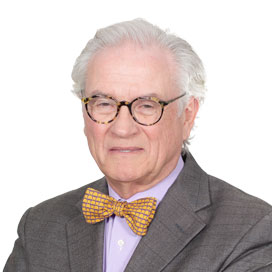Contact Us
Archives
Categories
- One Big Beautiful Bill Act
- 401(k)
- Retirement funds
- Secure Act 2.0
- Divorce
- Family Law
- Power of Attorney ("POA")
- CARES Act
- Corporate and Business Tax
- Tax consequences
- Tax Refund
- Taxation
- Nonprofit
- Wills and Trusts
- Business Formation and Planning
- Digital Assets
- Estate Administration
- Fiducaries
- Trusts
- Estate Planning
Changes Coming in 2024 for High Earners' 401(k) Catch-Up Contributions
Following the passage of the Secure Act 2.0, which has made many changes to the landscape of retirement planning, some workers will have to change how they make contributions to employer-sponsored retirement savings plans beginning in 2024.
 Starting at age 50, workers are entitled to begin making "catch-up" contributions to their employer-sponsored 401(k) plans in anticipation of retirement, which in 2023 is any amount up to $7,500, or $30,000 in the aggregate with the basic deferral of $22,500 annually as of 2023. 401(k) savings plans are tax deferred, meaning that pre-tax income is deposited, and savings are taxed at the time of withdrawal, when the now-retired worker is likely to fall in a lower tax bracket. This can provide a significant tax break upon withdrawal. For example, if a worker in the 35% tax bracket makes a $5,000 catch-up contribution, and if that worker, when retired, falls into the 15% tax bracket, he could withdraw that $5,000 and pay $1000 less in taxes.
Starting at age 50, workers are entitled to begin making "catch-up" contributions to their employer-sponsored 401(k) plans in anticipation of retirement, which in 2023 is any amount up to $7,500, or $30,000 in the aggregate with the basic deferral of $22,500 annually as of 2023. 401(k) savings plans are tax deferred, meaning that pre-tax income is deposited, and savings are taxed at the time of withdrawal, when the now-retired worker is likely to fall in a lower tax bracket. This can provide a significant tax break upon withdrawal. For example, if a worker in the 35% tax bracket makes a $5,000 catch-up contribution, and if that worker, when retired, falls into the 15% tax bracket, he could withdraw that $5,000 and pay $1000 less in taxes.
Beginning in 2024, however, high earners making $145,000 a year or more will be required to make any catch-up contributions to a Roth 401(k) account-meaning they will contribute aftertax dollars that then can grow and be withdrawn tax-free if Roth qualifications are met. This is a significant change that will certainly affect how high-earners craft retirement and estate plans, as the benefits of contributing extra funds to employer-sponsored retirement funds will shift in the absence of tax deferral. Workers affected by this change may consider increasing their catch-up contributions before the end of 2023 to make the most of current tax advantages.
For employers, this new rule will require significant administrative changes, as they will be required to establish Roth contribution accounts in their 401(k) plans if they want to make Roth deferrals available to high earners. Because of this administrative burden, many employers are calling for the implementation date to be delayed, but as of now, the new rule is still slated to go into effect on January 1, 2024.
Additionally, Secure Act 2.0 changes the age at which you must begin making taxable withdrawals from your pre-tax retirement accounts-known as required minimum distributions, or RMDs. As of 2023, you must begin RMDs the year you attain age 72; under Secure Act 2.0, those who attain age 72 after 2022, and age 73 before 2033, must begin RMDs at 73. Individuals who attain age 74 after December 31, 2022 must start RMDs at 75.
Secure Act 2.0 also makes adjustments to employee elective deferral contribution limits for SIMPLE IRAs, increasing the limit to those contributions from the current figure of $15,500 (plus $3,500 in catch-up contributions for those aged 50 or older). The limit will increase 10% for employees of employers with no more than 25 employees. Employers with 26-100 employees may provide them higher limits if they offer a 4% match or 3% non-elective contributions.
To learn more about how to adjust your financial plan in the face of the Secure Act 2.0, contact McBrayer today.

Ivan Schell is a Member of McBrayer PLLC. His multifaceted legal practice includes estate planning and administration, private foundation and public charity formation and planning, physician practice consultation and healthcare law, employee benefits law, and closely-held corporation planning transitions. He can be reached at ischell@mcbrayerfirm.com or by calling (502) 327-5400, ext. 2351.
 Alan D. Pauw is a Member of McBrayer PLLC and practices out of the firm’s Louisville office. His practice focuses on healthcare, employee benefit matters, estate planning, and general business and tax matters. Mr. Pauw can be reached at apauw@mcbrayerfirm.com or (502) 327-5400, ext. 2350.
Alan D. Pauw is a Member of McBrayer PLLC and practices out of the firm’s Louisville office. His practice focuses on healthcare, employee benefit matters, estate planning, and general business and tax matters. Mr. Pauw can be reached at apauw@mcbrayerfirm.com or (502) 327-5400, ext. 2350.
Services may be performed by others.
This article does not constitute legal advice.

